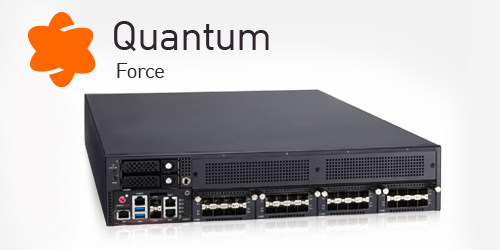How IP Address Work
IP addresses come in two different types: IPv4 and IPv6. IPv4 is in more widespread usage, but IPv6 is also used in some cases.
In IPv4, IP addresses consist of four numbers — called octets — separated by periods. For example, 127.0.0.1 is the loopback IP address for a computer (any traffic that a computer sends to it just goes back to it). Each of these values can be in the range 0-256, creating 2^32 possible addresses. While there are many potential IPv4 addresses, there are many more computers in the world. The IPv6 standard was defined to address the problem. It uses eight 16-bit fields separated by colons to identify a computer. These addresses are commonly written in hexadecimal, like 2001:0db8:85a3:0000:0000:8a2e:0370:7334. With 128 address bits, there are trillions of possible IPv6 addresses.
Types of IP Addresses
IP addresses can be classified in a few different ways. However, the format of the address stays the same regardless of how it is used,
Public vs. Private
Different IP addresses can be used in different contexts. An IP address can be classified as:
- Public: Public IP addresses identify a computer to its Internet Service Provider (ISP) and the rest of the Internet. A public IP address may uniquely identify a single computer or act as a shared access point for a private network.
- Private: Private IP addresses are used to identify computers within a local network. Certain ranges of IP addresses are assigned for this purpose — 10.0.0.0–10.255.255.255, 172.16.0.0–172.31.255.255, and 192.168.0.0–192.168.255.255 in IPv4— that can’t be used to identify a computer outside of its network.
Private IP addresses are why the IPv4 standard is still in use today. While the IPv4 address space should have run out years ago, private networks allow many computers to use the same public IP address, reducing the total number in use. Network address translation (NAT) converts between public and private IP addresses as traffic crosses a network boundary.
Static vs. Dynamic
IP addresses can also be classified by how they are assigned to a computer. The two types include:
- Static: Static IP addresses are semi-permanently assigned to a particular computer. For example, a company may assign static IP addresses to devices such as routers and printers.
- Dynamic: Dynamic IP addresses are temporarily assigned to a computer by a router using the Dynamic Host Configuration Protocol (DHCP). When a computer — such as a laptop or mobile device — connects to the network, it requests an IP address from the router, which assigns one from a pool of available ones. This IP address lease is good for a certain period, at which point the device will need to request a new one.
Website IP Addresses
Differences in web hosting arrangements can also affect IP addresses. Two types of website IP addresses include:
- Shared: Maybe websites are hosted on shared platforms, where a third-party service provider hosts many different sites. These websites will likely share an IP address — which points users to the computer hosting the site — and will be differentiated based on the requested URL.
- Dedicated: Other websites are hosted on their own computer and have a unique, dedicated IP address. For example, a large enterprise may have one or more web servers solely dedicated to hosting its website.
IP Address Security Threats
Knowledge of a user’s IP address is important in various attacks. Some potential threats to IP addresses include:
- Hijacking: Some attacks — such as ARP or DNS poisoning — allow an attacker to redirect traffic intended for a particular IP address. This typically involves claiming that the attacker owns the IP address in question or providing incorrect information in response to a request for the IP address for a computer or website.
- Blocklisting: Firewalls can be configured to block traffic from certain IP addresses or address ranges. This is commonly performed to block addresses associated with illegal activity.
- DDoS Attacks: Distributed denial-of-service (DDoS) attacks are designed to take a computer or network down by flooding it with traffic. To do so, the attacker needs to know the IP address of the target computer.
IP Address Protection with Quantum
An IP address allows people to find your computer on the Internet, which can be good or bad depending on their intentions. Check Point Quantum Network Security provides your organization with the tools it needs to protect against attacks targeting its IP addresses. Learn more with a free demo today.


















